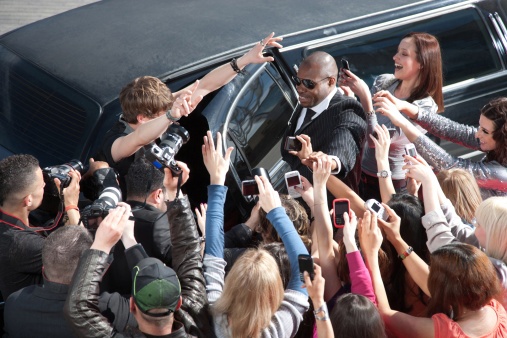Is There a Link Between Celebrity Worship and Lower Intelligence?

Let’s face it, as a society, we’re all enamored with celebrities and their lives. The glitz, glamour, and glow of famous Hollywood stars/starlets, the aurora and seemingly supernatural abilities of our favorite athletes and musicians – they draw us in, and that’s natural. However, most of us have at least a broad understanding that an immoderate obsession with celebrities is unhealthy.
Now, a recent study suggests there does exist an association between celebrity worship and lower cognitive performance, results which align with previous findings on addictive behaviors; though it should be noted, the association is not robust. The findings were published in BMC Psychology.
What Exactly is ‘Celebrity Worship’?
Celebrity worship in this context is defined as an “increased admiration towards a famous person, which sometimes manifests in an excessive interest in the life of a celebrity.” A previous study did find that people who scored higher on a measure of attraction to their favorite celebrity tended to score lower on measures of cognitive skills, but this study was conducted over two decades ago. Still, it is known celebrity worship is associated with several addictive behaviors (i.e., excessive Internet and social media use, compulsive buying, and addictive gambling). Therefore, researchers posited that excessive involvement with the life of an admired celebrity may impede cognitive performance.Suffering from addiction to gambling? This guide can help you.
How Varying Degrees of Celebrity Worship Were Assessed
The investigators set out to test two hypotheses; the first (H1) that performance on a vocabulary test, and the short digit symbol test, and the combination of both will decrease as levels of celebrity worship increase. The vocabulary test measured crystallized intelligence, which is the ability to utilize knowledge and skills obtained in the past, while the short digital symbol test measured fluid intelligence, which is the ability to think abstractly, reason, and solve problems without having any previous acquired knowledge.The second hypothesis (H2) postulated that there will be a negative relationship between scores of the vocabulary test, the short digital symbol test, and the combination of both and celebrity worship, even after controlling for the following factors (gender, age, education level, current family income, current and childhood material wealth and self-esteem).
This study assessed a total 1,763 adults recruited from a Hungarian news website, all of whom completed an online survey. The population were mostly male (66%), and an average of 37 years of age. The majority (over 70%) reported having a college degree or higher, and 28% reported having a secondary school certification, while only about 1.2% completed eight or less classes at primary school.
The Celebrity Attitude Scale (CAS) was used in this analysis, which is a 23-item survey measured on 5-point scale with 1 being “strongly disagree”, and 5 meaning “strongly agree”. High scores indicated a strong attraction to one’s favorability celebrity. Specifically, the CAS comprised of three dimensions of celebrity worship: Entertainment-Social (ES), which presented items such as “My friends and I like to discuss what my favorite celebrity has done,” Intense-Personal (IP) feelings, defined by terms such as “I have frequent thoughts about my (favorite) celebrity, even when I don’t want to.” The third, and most intense level, was labeled Borderline-Pathological (BP), and was presented with items like: “If I were lucky enough to meet my favorite celebrity, and he/she asked me to do something illegal as a favor I would probably do it.”
Results Highlight the Dangers of Excessive Behaviors
According to the results, higher scores of celebrity worship were consistent with lower performance on both cognitive ability tests (vocabulary and digital symbol), although, the researchers noted, these associations “generally were weak” (rs were between − 0.05 and − 0.12, respectively), which supported H1. The study also found partial correlations between the weak, negative relationship among celebrity worship and cognitive skills in most aspects except for between the vocab test and the Entertainment-Social dimension of celebrity worship; a correlation which was consistent with H2.In conclusion, the researchers wrote that “this study indicated a weak, negative association between celebrity worship and cognitive performance even after controlling for some relevant demographic, socioeconomic and psychological factors. These results align with previous findings on addictive behaviors, which suggest that excessive behaviors can impair cognitive functioning due to the increased focus and energy invested in the behavior that dominates the person’s life.”
